What is disaster shock? How to help your loved ones suffering from it
Hurricanes, tornadoes and floods physically tear apart homes and leave people battered, but the injuries you don't see can be just as harmful and debilitating. Disaster shock and emotional trauma can interfere with functioning throughout everyday life.
Disasters with no warning can cause feelings of vulnerability and a sense of loss of control or the loss of the ability to protect yourself and your family, states the Substance Abuse and Mental Health Services Administration. Lack of assistance post-disaster can lead to feelings of abandonment.
Everyone needs to go through the process to accept dramatic events, the fear of the unknown and grieve the losses. The important part is to make them memories rather than reliving them.
"These kinds of storms can have a tremendous psychological impact," Josh Klapow, psychologist and performance coach with MentalDrive, told FOX Weather. "It's very normal. It's the way that our brains sort of process these big events, but it can be very distressing and debilitating."
ADVICE FOR DEALING WITH STORM ANXIETY WHEN SEVERE WEATHER THREATENS
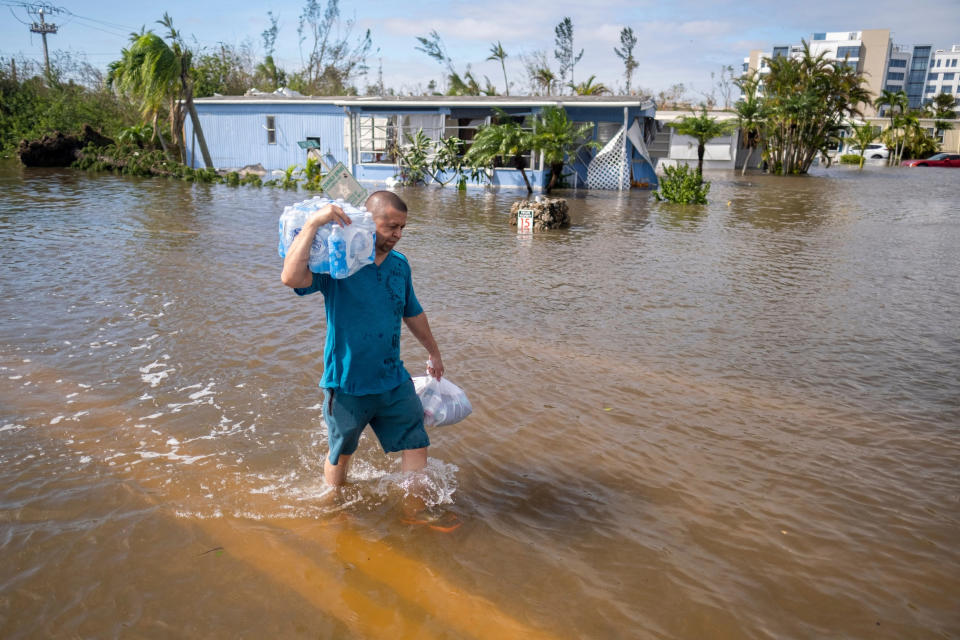
There are a few key things to look for to assess if your loved one is suffering from disaster shock.
After someone goes through a traumatic experience, it is normal to feel out-of-sorts, dazed, stunned and confused, according to Klapow. Those are normal defense emotions. Some can be intense and unpredictable.
Survivors may be moody and go back and forth from nervous and anxious to depressed and back to normal, he explained. They may also fixate on thoughts of evacuation and footage of the storm on TV. Victims may even find it difficult to make decisions, sleep and even eat. Look for a short temper, intolerance and a lack of patience. Many times, survivors feel irritated and may not like talking to others.
They may also feel physical pain like headaches, muscle cramps and aches, nausea and fatigue.
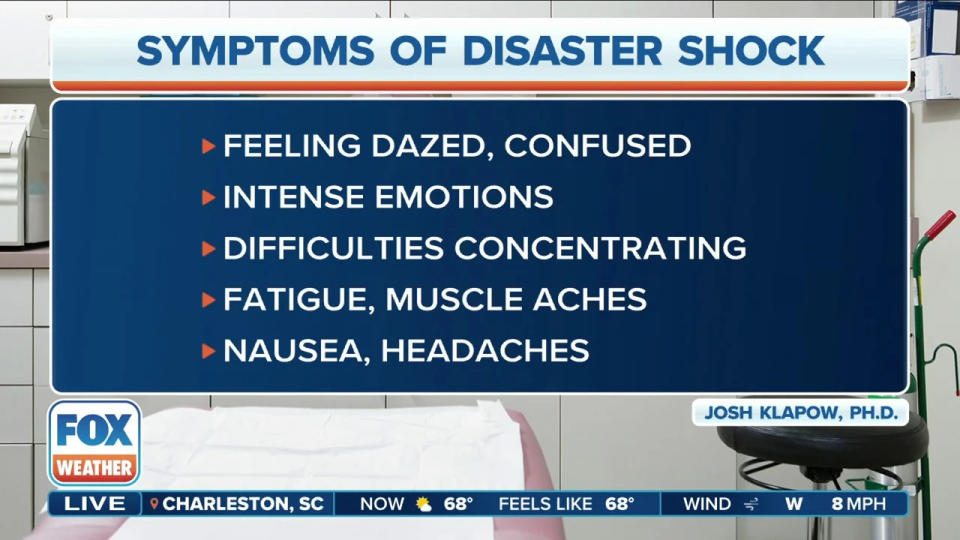
Recognizing the symptoms of disaster shock is just the first step of a process that can sometimes require professional help. Kalpow said there are things that nonprofessionals can do immediately following a disaster to help people suffering from shock.
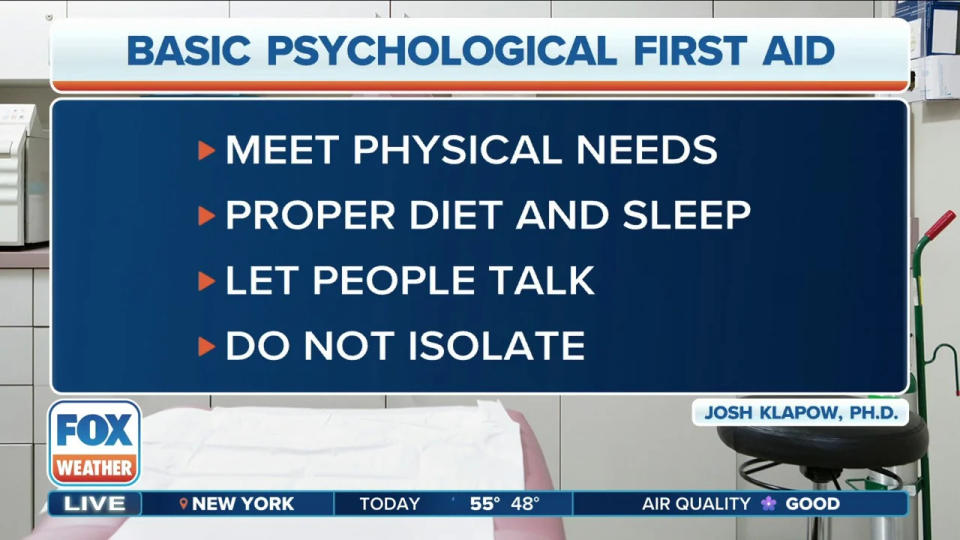
After medical first aid, using psychological first aid after a disaster can be a vital first response for first responders and loved ones, Klapow said. He laid out a four-step process:
Make sure the storm survivor's basic physical needs are met. This is food, shelter, clothing and protection. He said this can greatly reduce psychological distress.
Try to meet the victim's psychological needs by providing emotional support and allowing them to talk about the experience if they want to.
Reunite the victim with friends and family as soon as possible to strengthen social and community support networks.
If signs of distress continue, seek professional help.
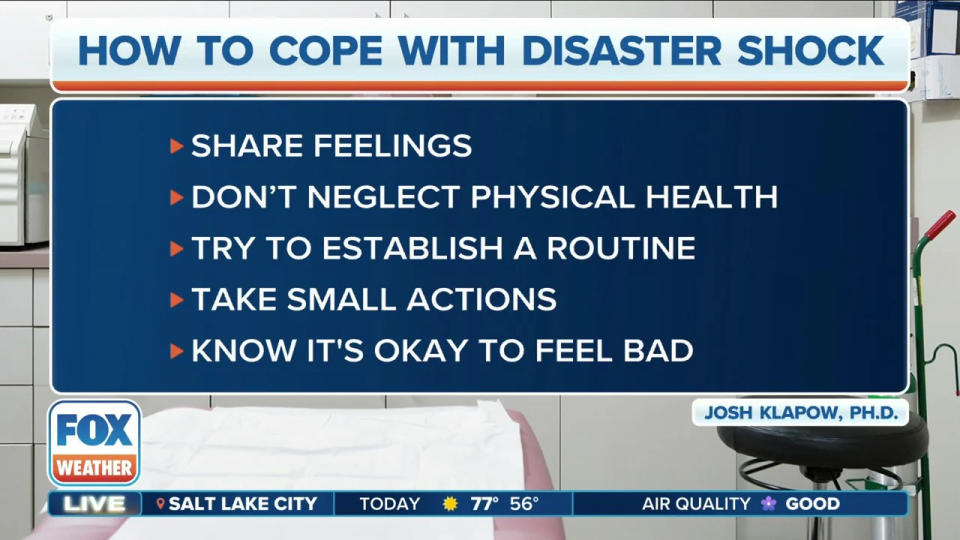
After the first aid, Klapow has a few suggestions to help people work through the shock.
First, he said, is to encourage victims to share their feelings with loved ones and other survivors.
"To be with your feelings, to be able to share them with people and feel them instead of push them away, is your greatest chance of resolving them and allowing this to be just a memory, not a constant intrusion or trigger moving forward," echoed Frank Anderson, psychiatrist and author of Transcending Trauma in an earlier interview.
Pay attention to physical health. Eating, sleeping and hydrating helps the body fight off anxiety and stress.
Create routines to take away some of the unknown, even in a shelter. Order and structure can greatly reduce stress and anxiety, whether that's when you eat or daily exercise, something that is predictable.
BOOK HELPS CHILDREN RECOVER FROM NATURAL DISASTERS
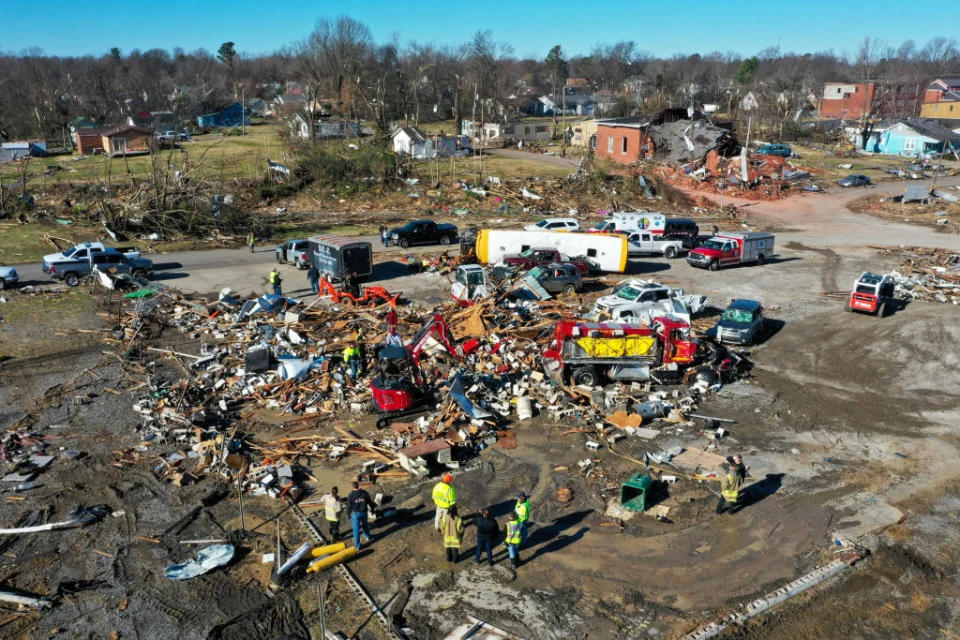
Take little steps and small actions that can affect an everyday routine. For example, make to-do lists for today and tomorrow or get in touch with the insurance company, he suggested.
Tell survivors that they need to give themselves permission to to feel out-of-sorts. It's OK to have mini breakdowns each day. Victims should remind themselves that they are tough and resilient. Many people have the skills to deal with the shock and bounce back.
"It's okay to feel bad and anxious right after a storm," Klapow said. "Those are normal things, and for most people, it will pass over time."
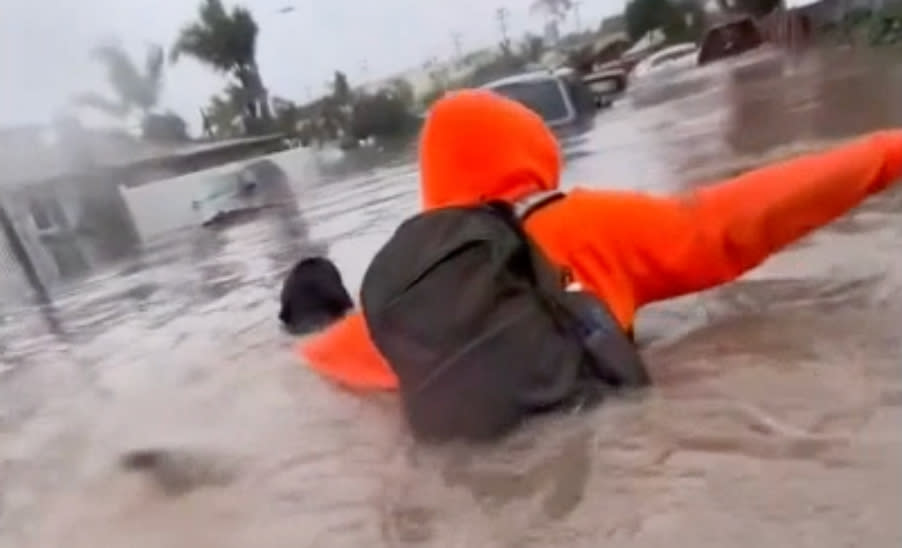
If the symptoms and anxiety don't go away over time, reach out for professional help.
"Acute trauma is often a single event, as these tornadoes are, and what ends up happening for people is they have the typical symptoms of PTSD or post-traumatic stress disorder. However, most likely, they should resolve within 30 days," Anderson said.
Longer than that, and the person may be suffering from chronic PTSD, Anderson said.
Original article source: What is disaster shock? How to help your loved ones suffering from it

